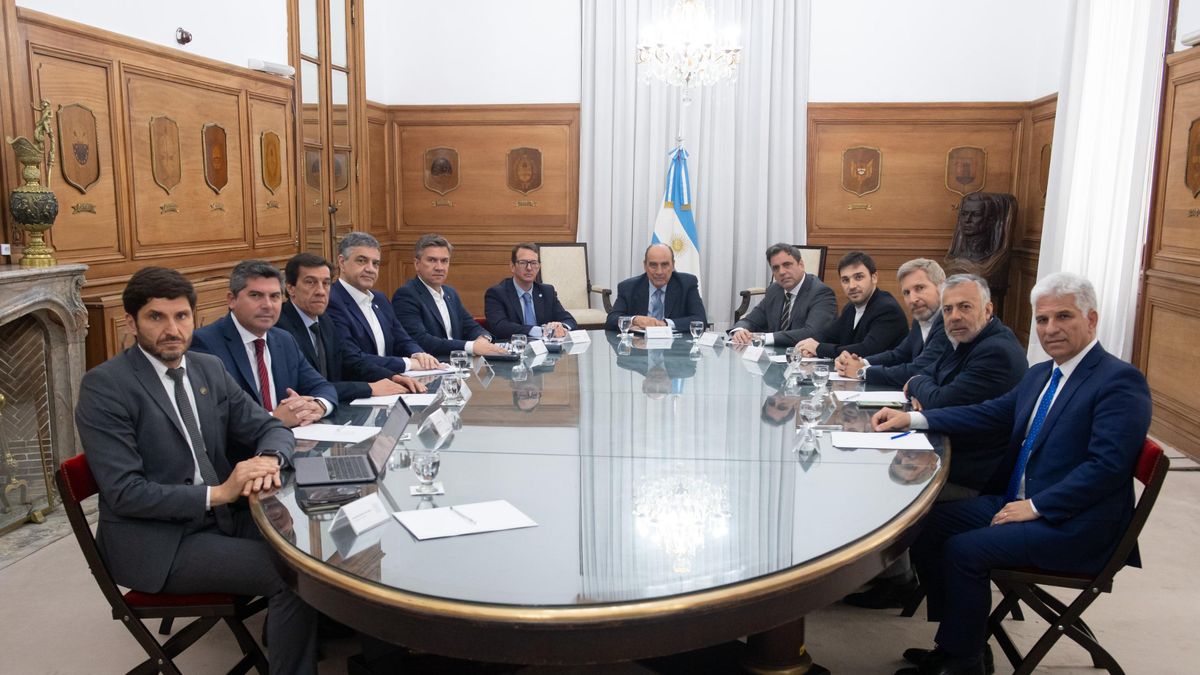After a week of tension, the fight between Javier Milei and the provinces for the Budget 2025 enters injury time. The official intransigence to include the districts’ claims stirred up ghosts of the past and once again put the link between both parties in the red zone, after a period of relative calm on that front. Now the dialogue governors and block heads manage a meeting with the ruling party to bring positions closer together.
With the scenario set out in this way, irritation is no longer the exclusive responsibility of the leaders of Union for the Homeland (UP), who lead the fiercest opposition to the Government, but also reaches his peers from Together for Change (JxC), from wayward Peronism and provincialisms, who played in favor of the libertarians on various occasions and do not feel reciprocated by Milei.
Provinces manage meeting with the Government
The negotiations for “law of laws” They started off on the wrong foot. Seeking to generate a coup, Milei personally brought the project to Congress last September. There he demanded an adjustment of US$60 billion from the provinces, a fact that angered the governors. A day later, the Chief of Staff, Guillermo Francostogether with the minister Luis Caputoled a Zoom with the leaders to calm tempers and relativize the words of the head of the Executive.
At this time, in the Casa Rosada they affirm that they would only call extraordinary sessions if an agreement is previously reached with the districts to discuss the project. As he was able to find out Scopewith Alfredo Cornejo (Mendoza) and Rogelio Frigerio (Entre Ríos) at the head, the leaders that make up the JxC league and the block heads of the UCR, Encuentro Federal and the PRO asked the Government for a meeting next week with the aim of bringing positions closer together and sealing the debate in the enclosure. The clock plays its game: The period of ordinary sessions will end on November 30.
Milei Governors PRO.jpg
PRO governors and allies with Javier Milei.
Among the dialogueist ranks, skepticism reigns. “It’s mid-afternoon and the Government is still tough. “Today, there is no path outlined other than to let March rise,” a deputy commented to this medium. At the same time, he considered that it would be “crazy” to extend the current Budget, which is for 2023, but he stressed that at this time “It seems that this is the path that the Government wants.” That possibility is a double-edged sword: On the one hand, it would grant Milei discretion to manage funds, but, on the other, it would be a bad sign for the markets and the IMF. However, in the libertarian universe, surprises are the order of the day.
“Financially, it is in the interest of the Government to redirect the current Budget. They can do whatever they want, basically, if they redirect. But you sacrifice the key gesture to the markets in terms of fiscal balance,” they evaluated from the orbit of a governor in good harmony with the Pink House. However, they clarified: “Redirecting them would make them very K. The most coherent thing would be to negotiate a budget with fiscal balance.”
The governors’ claims
The combo of claims agitating the provinces has been reiterated for some time: include paralyzed public works within the project, greater volume in Federal Co-participation – for example, via the Fuel Tax -, equitable distribution of National Treasury Contributions, pension funds and debts from the 2017 Fiscal Consensus, among others. Meanwhile, in items such as the National Teacher Incentive Fund (FONID) and the Interior Compensation Fund, the leaders seem to have resigned.
Last Tuesday, the ruling party suspended the meeting of the Finance and Budget Commission of the Chamber of Deputies in charge of José Luis Espert. The decision was made after evaluating that they did not have the support to obtain a ruling. Later, Espert commented that they would evaluate calling extraordinary sessions. The event generated anger among the governors, but also expectations to continue negotiating.
Source: Ambito




